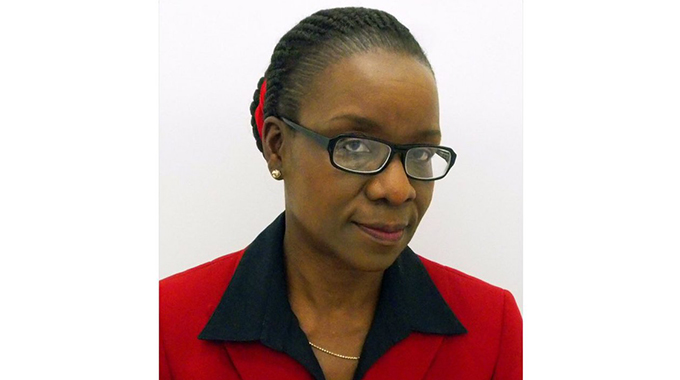More patients recover from Covid-19

Herald Reporter
Almost half of Zimbabwe’s confirmed Covid-19 patients have now fully recovered with more shrugging off the last of their infection almost every day, but medical experts warn that this is no reason to be complacent.
The number of Zimbabwe’s confirmed cases stands at 56, with 25 now fully recovered and four who have died.
But while most of those who are infected with Covid-19 recover, this is because they are fit and have no underlying health problems, as Chief Cordinator of the National Response of the Covid-19, Dr Agness Mahomva, notes.
What makes Covid-19 so serious a threat is generally when patients have other health concerns.
“We have recorded four deaths so far. Those people had underlying health problems like hypertension, heart ailments and advanced age. With regard to those that have recovered they had no underlying health problems,” said Dr Mahomva.
There is no cure for Covid-19. The body has to fight the virus with its own immune system. Medical treatment is largely ensuring the patient rests, is isolated so they do not infect anyone else, and can receive nursing such as oxygen or a ventilator if they run into serious respiratory distress. Antibiotics may be prescribed to ensure that the weakened patient is not hit with a second opportunistic infection, although the drugs have no impact on viruses.
But just because a large majority of patients recover, and most of these recover without special care, the death rates from Covid-19 are a lot higher than for most other “flu-type” infections, hence the special precautions that need to be taken. Even fit young people can die, although the percentage is a lot less than for older people with underlying conditions.
If the virus gets out of control in a country, as has been seen in much of Europe for example, you can go from a handful of cases to hundreds of thousands in a few weeks, and at this stage even the most advanced countries stop testing even most sick people, just the most vulnerable, and hospitals and the like can be overwhelmed.
This is when countries start counting their dead in the thousands, even when 80 percent of infected people recover without special care, and a good chunk of the rest recover with the necessary special nursing.
So the objective is to prevent the virus getting out of control. This is what Zimbabwe has been managing to do with the lockdown and the other special measures.
“It has been a comprehensive package, which includes education, testing, isolating and quarantining those returning residents. But as a Government, for planning purpose, we plan for the worst but if the situation improves that would be lucky for us. The best is to look at the worst scenario,” said Dr Mahomva.
Since the pandemic can suddenly explode if precautions are flouted or fail, the medical authorities have been preparing and equipping the special isolation units required to treat the people who are in the vulnerable groups or those who develop serious symptoms.
But because recoveries are outnumbering confirmed new infections at the moment, relaxing the precautions might not be the best idea.
World Health Organisation Zimbabwe representative, Dr Alex Gasasira concurred with Dr Mahomva.
He said while Zimbabwe had put a lot of measures to contain the disease, the country had to guard against complacency.
“We have said about 40 percent of infected persons will have mild disease and we also expect 80 percent of those infected to recover. It is 20 percent that get critical and it is generally the trend obtaining in Zimbabwe.
“People who die are those with underlying diseases. Zimbabwe is doing a lot to contain Covid-19 and as WHO we are quite happy with what Zimbabwe is doing,” said Dr Gasasira.
“However, we will never say it is enough but it is encouraging. Zimbabwe needs to continue doing more than the good work it is doing. There is need to collect as much information as possible from recovered cases and see what you can learn so as to strengthen your health systems. It is too early for now to say we are out of the woods. We need to continue to be vigilant.”
Harare City Council health services director, Dr Prosper Chonzi attributed the recoveries to early testing and isolation among other measures Zimbabwe is undertaking. This means that those who are infected can be treated early, even if the treatment for a patient with mild symptoms is bed rest.
“We are picking them early enough and isolate them, give them antibiotic, educate them and we are happy that the people are listening and taking heed of the advice and education we give them. It is too early, however, to celebrate. I would want to tread with caution, let us not throw caution to the wind,” said Dr Chonzi.
“You will also notice that the type of patients that we are confirming are the younger people with no underlying health problems or conditions. These are just people who just get exposed to the virus but have no any other illness and the body is still strong to fight the virus and recover. So we have been giving them antibiotics, educate them, among other several measures we have taken.’’
While Zimbabwe went into lockdown early in the Covid-19 presence in the country, denying the virus an opportunity to run wild, the Government has been careful to move step by step to lift restrictions on business and normal life, with President Mnangagwa extending the Level 2 lockdown stage indefinitely to ensure tight control over the careful and phased return to normalcy.











Comments